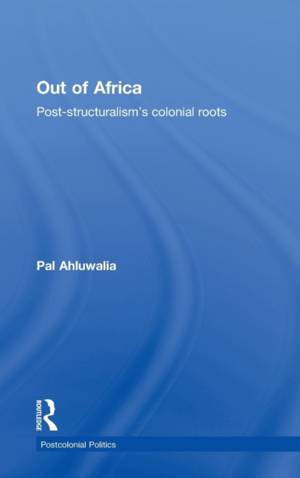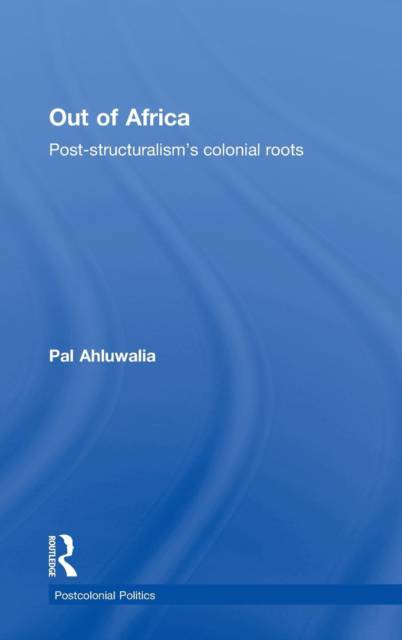
- Retrait gratuit dans votre magasin Club
- 7.000.000 titres dans notre catalogue
- Payer en toute sécurité
- Toujours un magasin près de chez vous
- Retrait gratuit dans votre magasin Club
- 7.000.0000 titres dans notre catalogue
- Payer en toute sécurité
- Toujours un magasin près de chez vous
Description
At the heart of this book is the argument that the fact that so many post-structuralist French intellectuals have a strong 'colonial' connection, usually with Algeria, cannot be a coincidence. The 'biographical' fact that so many French intellectuals were born in or otherwise connected with French Algeria has often been noted, but it has never been theorised. Ahluwalia makes a convincing case that post-structuralism in fact has colonial and postcolonial roots. This is an important argument, and one that 'connects' two theoretical currents that continue to be of great interest, post-structuralism and postcolonialism.
The re-reading of what is now familiar material against the background of de-colonial struggles demonstrates the extent to which it is this new condition that prompted theory to question long-held assumptions inscribed in the European colonial enterprise. The wide-ranging discussion, ranging across authors as different as Foucault, Derrida, Fanon, Althusser, Cixous, Bourdieu and Lyotard, enables the reader to make connections that have remained unnoticed or been neglected. It also brings back into view a history of struggles, both political and theoretical, that has shaped the landscape of critique in the social sciences and humanities.
This clear and lucid discussion of important and often difficult thinkers will be widely read and widely debated by students and academics alike.
Spécifications
Parties prenantes
- Auteur(s) :
- Editeur:
Contenu
- Nombre de pages :
- 204
- Langue:
- Anglais
- Collection :
Caractéristiques
- EAN:
- 9780415570695
- Date de parution :
- 24-05-10
- Format:
- Livre relié
- Format numérique:
- Genaaid
- Dimensions :
- 156 mm x 234 mm
- Poids :
- 467 g

Les avis
Nous publions uniquement les avis qui respectent les conditions requises. Consultez nos conditions pour les avis.






